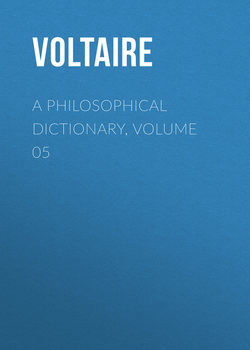Читать книгу A Philosophical Dictionary, Volume 05 - Voltaire, Вольтер - Страница 5
FAVOR
ОглавлениеOf What is Understood by the Word
Favor, from the Latin word "favor," rather signifies a benefit than a recompense.
We earnestly beg a favor; we merit and loudly demand a recompense. The god Favor, according to the Roman mythologists, was the son of Beauty and Fortune. All favor conveys the idea of something gratuitous; he has done me the favor of introducing me, of presenting me, of recommending my friend, of correcting my work. The favor of princes is the effect of their fancy, and of assiduous complaisance. The favor of the people sometimes implies merit, but is more often attributable to lucky accident.
Favor differs much from kindness. That man is in favor with the king, but he has not yet received any kindnesses from him. We say that he has been received into the good graces of a person, not he has been received into favor; though we say to be in favor, because favor is supposed to be an habitual taste; while to receive into grace is to pardon, or, at least, is less than to bestow a favor.
To obtain grace is the effect of a moment; to obtain favor is a work of time. Nevertheless, we say indifferently, do me the kindness and do me the favor, to recommend my friend.
Letters of recommendation were formerly called letters of favor. Severus says, in the tragedy of Polyeuctes:
Je mourrais mille fois plutôt que d'abuser
Des lettres de faveur que j'ai pour l'épouser.
"Letters of favor," though I have to wed her,
I'd rather die a thousand times than use them.
We have the favor and good-will, not the kindness of the prince and the public. We may obtain the favor of our audience by modesty, but it will not be gracious if we are tedious.
This expression "favor," signifies a gratuitous good-will, which we seek to obtain from the prince or the public. Gallantry has extended it to the complaisance of the ladies; and though we do not say that we have the favors of the king, we say that we have the favors of a lady.
The equivalent to this expression is unknown in Asia, where the women possess less influence. Formerly, ribbons, gloves, buckles, and sword-knots given by a lady, were called favors. The earl of Essex wore a glove of Queen Elizabeth's in his hat, which he called the queen's favor.
